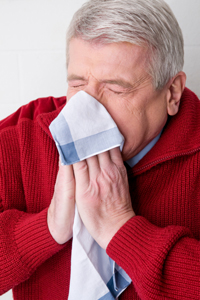 Trees budding, temperatures rising, sunshine stretching into the evening—it must be Spring! It’s great being on this side of the summer solstice, enjoying the opportunity to be outdoors, again, especially when it involves doing some flying after work.
Trees budding, temperatures rising, sunshine stretching into the evening—it must be Spring! It’s great being on this side of the summer solstice, enjoying the opportunity to be outdoors, again, especially when it involves doing some flying after work.
Unfortunately, for many of us, along with spring comes a headache, sinus pressure, or other allergic reactions to all the new growth blooming around us. Retailers enjoy rocketing sales of popular allergy medications and pilots may browse pharmacies’ shelves looking for some symptom relief. FAA is definitive as to which allergy medications are allowed and which are not. The good news is that the majority of allergy medications are allowed—some have a waiting period before flight and others, if reported on the FAA medical application, require a physician’s status report affirming there are no adverse side effects caused by the medication.
Curious as to which meds are OK to take and fly? AOPA maintains a database of medications searchable by trade name, generic name, medical condition, or type of medication. Or if you’re just browsing, you can view the entire drug list. The search results display in a table showing whether the medication is FAA-allowed for flight and under what conditions. Many medications are linked to a write-up describing how airman medicals may be impacted by the conditions they treat.
I did a database search for allergy medications. Here are the results for some of the most popular choices:
- Zyrtec is allowed with a 48-hour wait before flying, a maximum use of twice weekly, and a status report confirming no adverse side effects.
- Sudafed is allowed with no adverse side effects.
- Nasacort is allowed with a doctor’s status report and no adverse side effects.
- Claritin is allowed with no adverse side effects.
- Actifed is allowed with a 12-hour wait before flying.
There are hundreds of medications in the database, routinely prescribed or recommended for a multitude of medical conditions. If you haven’t already done so, you should check your meds against this list to make sure you have no surprises when you list them on your renewal application for an airman medical (Form 8500-8). AOPA has a screening program online that is a big help when anticipating a visit to your aviation medical examiner (AME). TurboMedical flags certification problems you may face based on your answers to questions on a simulated airman medical application. The results are confidential and help you identify what information to bring to your AME.
AOPA suggests you call our staff of medical certification experts before your appointment with your AME should you have questions about a medical condition or its accompanying medication as it relates to your flying activity. If you have the required paperwork with you, medical examiners can issue certain certificates in the office at the time of your visit that would otherwise be deferred to Oklahoma City, adding up to 90 days to your renewal process.
AOPA offers extended medical services for members through the AOPA Medical Services Program, providing you with support from our Medical Certification Specialists who are in regular contact with the FAA Aerospace Medical Certification Division. Participation in the comprehensive program gives you access to a specialist who will act as your advocate and complete a thorough review of your medical package before you send the file to the FAA. The specialist will check the status of your application and provide you updates on its progress. You can enroll in the Medical Services Program online, or call us to sign up, 800-USA-AOPA (872-2672).



